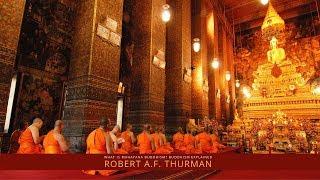✪✪✪✪✪ http://www.theaudiopedia.com ✪✪✪✪✪
What is STATE RELIGION? What does STATE RELIGION mean? STATE RELIGION meaning - STATE RELIGION definition - STATE RELIGION explanation.
Source: Wikipedia.org article, adapted under https://creativecommons.org/licenses/by-sa/3.0/ license.
A state religion (also called an established religion, state church, established church, or official religion) is a religious body or creed officially endorsed by the state. A state with an official religion, while not secular, is not necessarily a theocracy – a country whose rulers have in their hands both secular and spiritual authority.
Official religions have been known throughout human history in almost all types of cultures. They were adopted by most ancient states, both monoethnic and polyethnic, and observing them was a requirement made to all citizens, and especially public officials.
Official religions justified and reinforced the type of government existing in a society. Sanctifying it as the most, or the only, correct (divine) one, they often put forward and/or supported ideas of its expansion to other lands, whether the latter already follow the same religion or, sometimes not.
As the term church is typically applied to a Christian place of worship and organizations incorporating such ones, the term state church is associated with Christianity, historically the state church of the Roman Empire in the last centuries of the Empire's existence, and is sometimes used to denote a specific modern national branch of Christianity. Closely related to state churches are what sociologists call ecclesiae, though the two are slightly different.
State religions are official or government-sanctioned establishments of a religion, but neither does the state need be under the control of the religion (as in a theocracy), nor is the state-sanctioned religion necessarily under the control of the state.
The institution of state-sponsored religious cults is ancient, reaching into the Ancient Near East and prehistory. The relation of religious cult and the state was discussed by Varro, under the term of theologia civilis ("civic theology"). The first state-sponsored Christian church was the Armenian Apostolic Church, established in 301 AD.
In the Near East and Middle East, many states with mostly Islamic population have Islam as their state religion in its Shiite or Sunnite variety, though the degree of religious restrictions on the citizen's everyday life varies. On the one hand, rulers of Saudi Arabia join secular and religious power in their hands, and Iran's secular presidents since the revolution of 1979 are supposed to follow decisions of religious authorities. Turkey, which also has mostly Muslim population, after its 1920s revolution became a secular country, though unlike Russian revolution of the same decade, it did not make the country atheistic.
The degree that an official religion is imposed upon citizens in contemporary society varies considerably from total as in Saudi Arabia to not at all as in Norway.
What is STATE RELIGION? What does STATE RELIGION mean? STATE RELIGION meaning & explanation
Be the first to comment











